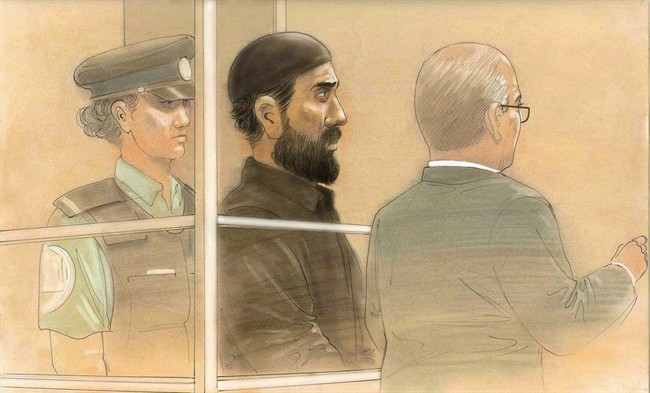TORONTO – The lawyer for one of two men accused of plotting to derail a passenger train between Canada and the U.S. says his client was never actually interested in carrying out terrorist activities.

He says Raed Jaser was really only ever interested in extracting money from his co-accused and undercover FBI agent who joined their alleged plan.
Jaser and Chiheb Esseghaier face several terror-related charges in the alleged plot to derail a Via Rail train travelling from New York to Toronto.
Jaser pleaded not guilty and Esseghaier, who is representing himself, had to have a not-guilty plea entered for him by the judge as he didn’t wish to participate in the trial.
Jaser’s lawyer, John Norris, told the jury in closing submissions that the only possible verdict for Jaser was not guilty on the four terror-related charges he faces.
Norris acknowledged that in secretly recorded conversations played for the court Jaser was heard saying “many, many terrible things,” but he says his client was “not sincere in anything he said about the plots.”
READ MORE: Via Rail terror suspects choose not to call evidence, witnesses
Norris says Jaser’s involvement with Esseghaier and his engagement with alleged terror plots was all “entirely feigned.”
“It was a front Mr. Jaser adopted because he thought he could get something he wanted out of Mr. Esseghaier and then a little bit later, out of (the undercover agent,” Norris told the jury. “What was it he wanted? Money. As simple as that.”
Norris said there was “not a meeting of the minds” between Jaser and Esseghaier and that Jaser did not have the “knowledge or purpose” necessary to participate in the offences he is charged with.
He suggested that the jury should have no difficulty finding that Esseghaier had terrorist aspirations and was bent on carrying out terror attacks.
But Jaser, Norris said, was not like that.
“He said and did the things he did not because he meant them but because it could help him get the things he wanted,” Norris said.
“What would work if you’re trying to extract money from people who say they have money to fund jihadist projects? You would say you were part of their jihadist project and, by the way, you have some ideas for other things but they just need an infusion of cash.”
The Crown has argued that there is an “overwhelming” amount of evidence in the case against both Jaser and Esseghaier, and has urged the jury to find both men guilty on all the charges they face.
- Cars torched, explosions heard in suspected arson in Montreal neighbourhood
- Gas station clerk stabbed several times during violent attack at Ultramar in Montreal
- Man acquitted in Tina Fontaine murder found dead, says her aunt
- Canadians should expect politicians to support right to bail, Virani’s office says



Comments